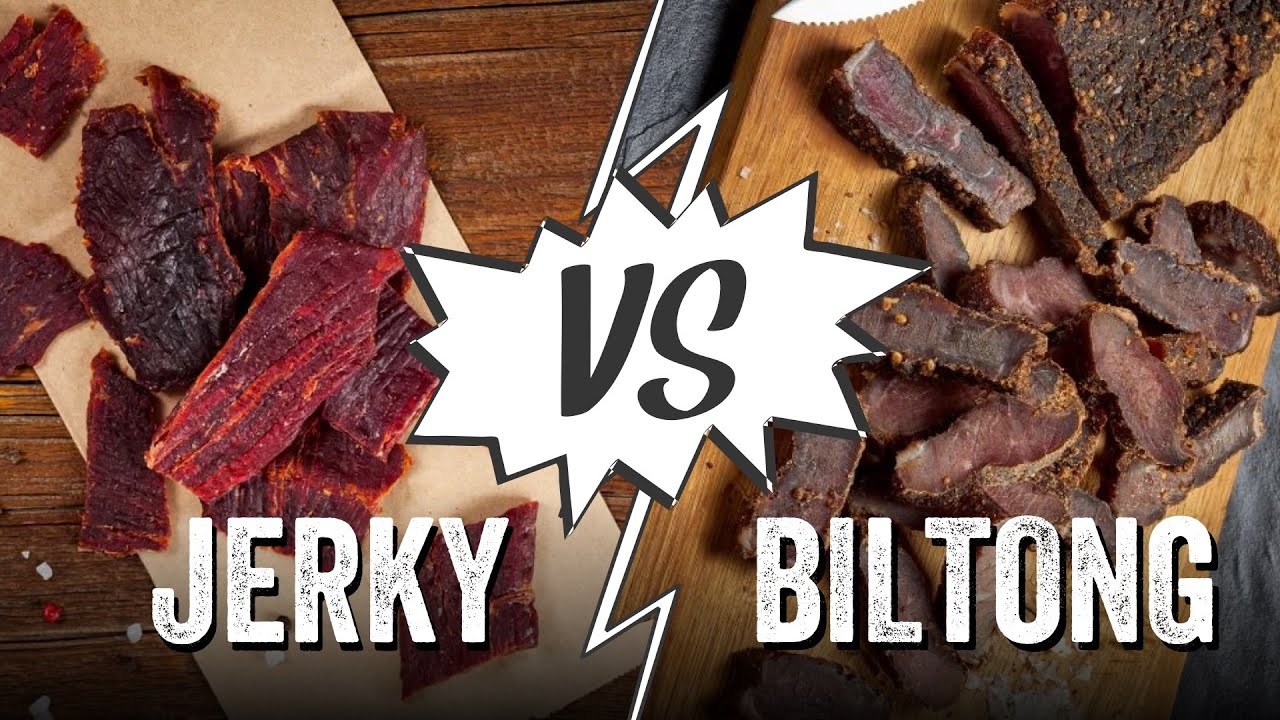Biltong: Nutrition, Benefits, and How It Compares to Jerky

Understanding Biltong
What is Biltong?
Biltong is a traditional South African snack made from lean cuts of beef, game meat, or poultry. The meat is marinated in a mixture of vinegar, salt, and spices, such as coriander, pepper, and paprika, before being air-dried or cured. Unlike jerky, which is typically smoked and dehydrated, biltong is air-dried in a well-ventilated area, resulting in a tender texture and rich flavor.
Nutritional Profile of Biltong
Biltong is a nutrient-dense snack that provides a rich source of protein, essential vitamins, and minerals. A typical serving of biltong (about 1 ounce) contains approximately:
- Protein: 15-20 grams
- Fat: 1-5 grams
- Calories: 80-100 calories
Biltong is also low in carbohydrates, making it an excellent choice for individuals following low-carb or ketogenic diets. Additionally, biltong is a good source of iron, zinc, and B vitamins, including B12 and niacin, which are essential for energy metabolism and overall health.
Benefits of Biltong
High Protein Content
Biltong is a rich source of high-quality protein, making it an ideal snack for athletes, fitness enthusiasts, and individuals looking to increase their protein intake. Protein is essential for muscle repair and growth, satiety, and overall health, making biltong a convenient and delicious way to meet daily protein needs.
Low in Carbohydrates
Unlike many other snack foods, biltong is naturally low in carbohydrates, making it suitable for individuals following low-carb or ketogenic diets. By providing a satisfying and flavorful snack option without added sugars or starches, biltong can help support blood sugar management and promote weight loss or weight maintenance goals.
Nutrient Density
Biltong is a nutrient-dense food that provides essential vitamins and minerals necessary for overall health and well-being. Iron, zinc, and B vitamins found in biltong play vital roles in energy metabolism, immune function, and cognitive health, making biltong a convenient and tasty way to boost nutrient intake.
How Biltong Compares to Jerky
Texture and Flavor
One of the primary differences between biltong and jerky is their texture and flavor profile. Biltong is air-dried, resulting in a tender, slightly chewy texture and rich, savory flavor. In contrast, jerky is typically smoked and dehydrated, resulting in a drier, tougher texture and often a smoky or sweet flavor profile.
Ingredients and Preparation
While both biltong and jerky are made from dried, cured meat, the ingredients and preparation methods differ. Biltong is marinated in a mixture of vinegar, salt, and spices before being air-dried, whereas jerky is seasoned with a variety of spices, herbs, and marinades before being smoked and dehydrated.
Nutritional Profile
Nutritionally, biltong and jerky are similar in that they both provide a rich source of protein and essential nutrients. However, biltong tends to be lower in sodium and fat compared to jerky, making it a slightly leaner option. Additionally, biltong is often made without added sugars or artificial ingredients, making it a cleaner, more natural snack choice.
Frequently Asked Questions (FAQs)
Is biltong healthier than jerky?
Both biltong and jerky can be part of a healthy diet when enjoyed in moderation. However, biltong tends to be lower in sodium and fat and may contain fewer additives compared to some varieties of jerky, making it a slightly healthier option for some individuals.
Is biltong suitable for individuals with dietary restrictions?
Biltong is naturally gluten-free and can be suitable for individuals with gluten sensitivities or celiac disease. However, it’s essential to check the ingredient list, as some varieties of biltong may contain soy sauce or other gluten-containing ingredients.
Can I make biltong at home?
Yes, biltong can be made at home using a few simple ingredients and a dehydrator or well-ventilated area for air-drying. There are many recipes and tutorials available online for making homemade biltong, allowing you to customize the flavor and ingredients to your preferences.
How should I store biltong?
Biltong should be stored in a cool, dry place away from direct sunlight to prevent spoilage. It can be stored at room temperature for several weeks or refrigerated for longer shelf life. Once opened, biltong should be consumed within a few days for optimal freshness.
Can biltong be part of a weight loss diet?
Biltong can be a convenient and satisfying snack option for individuals following a weight loss diet, as it provides a rich source of protein and essential nutrients without added sugars or carbohydrates. However, portion control is key, as biltong is calorie-dense and can contribute to excess calorie intake if consumed in large quantities.
Is biltong safe to eat raw?
Biltong is not typically eaten raw, as it undergoes a curing and drying process to ensure safety and preservation. Consuming raw or undercooked meat can pose a risk of foodborne illness, so it’s essential to ensure that biltong is properly cured and dried before consumption.
Can I enjoy biltong if I have high blood pressure or heart disease?
Biltong can be a suitable snack option for individuals with high blood pressure or heart disease, as it tends to be lower in sodium and fat compared to some varieties of jerky. However, it’s essential to monitor portion sizes and choose biltong made with minimal additives to support heart health and overall well-being.
Conclusion
Biltong is a flavorful and nutritious snack that provides a convenient source of protein and essential nutrients. With its tender texture, rich flavor, and simple ingredients, biltong offers a delicious alternative to traditional meat snacks like jerky. Whether enjoyed on its own as a satisfying snack or incorporated into recipes for added flavor and protein, biltong is a versatile and delicious addition to any diet. By understanding its nutritional benefits, comparing it to jerky, and exploring frequently asked questions, you can make informed choices about incorporating biltong into your healthy lifestyle.
- The Ultimate CBD Sleep Solution A Comprehensive Review By Slumber CBD - April 13, 2024
- Cosmic Delights: Exploring Just Delta’s Delta 8 Disposable Cartridges - April 13, 2024
- Tom Daley Is Wrong: Lemon Water Won Give You Abs - April 9, 2024
